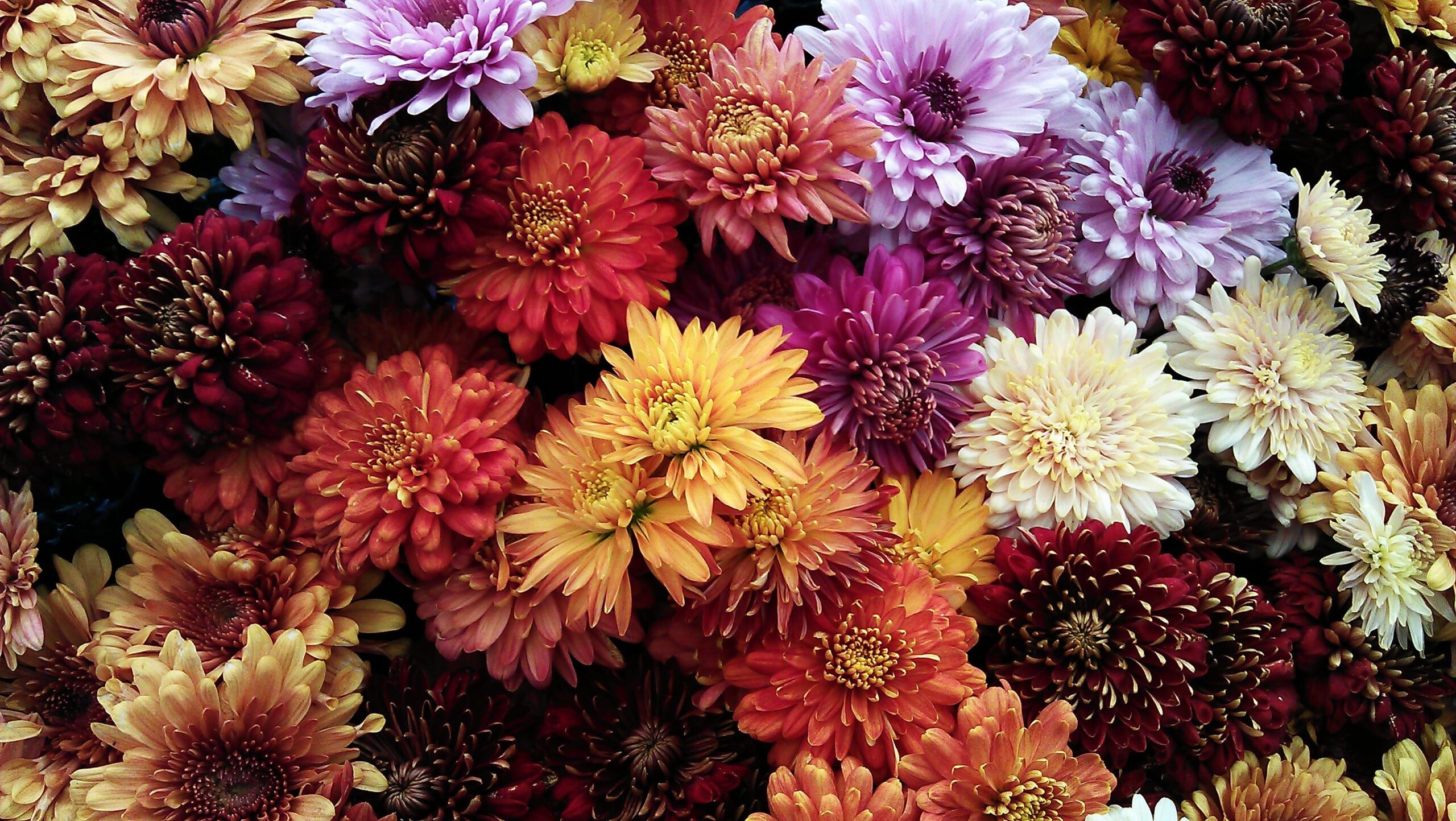Logophilia: The Love of Words and Word Games by Lars Johnson

(To Angelique, my Chrysanthemum)
When was the last time you used an antiquated term or phrase in casual conversation? Like “quaff” or “woo”—can woo be quaffed or quenched or is it only pitched? And where did the phrase “pitching woo” come from anyway? Just what exactly is being “pitched” here? Words (whispered sweet nothings), certainly, but also and perhaps, gestures, glances, gesticulations, gyrations . . . there is, seemingly, a great deal of potential in the rather mundane term “pitch,” especially when coupled, combined, cohabited, conjoined, dare we even say (oh, let’s!) copulated—is this correct, is it seemly—with woo? What a wonderful, potent, fecund fertility in words and their combining.
And what about hither and thither? When was the last time you used either or both of these wonderful words? And why is it that “pitch” and “woo” have gotten me thinking about “hither” and “thither”?
Come hither my love
that we might go
thither together
find a field fragrant
with heather
lay us down to dream
sage-scented dreams.
Oh my, how words carry one away, and not only to other words, but to sounds and to scents and to sights never before (or never in quite the same way) seen or smelt or heard. “Smelt”—now that’s a funny sounding word, isn’t it? Not terribly attractive. Though the sibilant “s” combined with the nasal “m” makes one perform satisfying motions with the tongue and the lips: the gliding “l” that leads to the voiceless “t” which requires one to touch the alveolar ridge with the tip of the tongue is . . . tantalizing, delicious, delightful. Say it slowly, draw out the sounds, the motions, be delighted.
Speaking, savoring, luxuriating in the movement of the mouth and tongue and lips as they dance and trill, come together and part, open and close, slide and stop is sheer pleasure. A pleasure that borders on ecstasy when one also writes those beautiful and tantalizing words and brings into being the world and worlds those words point back to, stand for, somehow make visible. If reading and speaking Shakespeare is like having jewels in your mouth (who said this?—it’s just on the tip of my tongue!), writing, whether in Shakespeare’s strange and wonderful English or in a more work-a-day lingua franca, is like letting those jewels tumble forth to wink and glint in the light. Shakespeare might claim of us and our English, that we “have been at a great feast of languages, and stolen the scraps,” but what a feast he has given us and oh what savory scraps they are!
Is writing a science or an art—maybe even a dark art? (Milton, after all, made “darkness visible” in his poetic language. Oh, the wonder of his Paradise Lost, the wonder of his language!) Whatever it is, it has a strange conjuring power, one that seemingly works independently of consciousness, of intent. Words thought, spoken, and especially written, produce other words, other images, as if they are self-generating, self-pollinating, endlessly, breathlessly proliferating.
Summer, late July.
I walk through the corn,
full tassel, pollen dripping,
covering silky ears.
Fertile humming,
erotic thrumming
in my ears. Singing
I emerge, covered,
so happy, so full.
Oh, God, please!
There is something uncanny about this game of writing (I almost wrote “business of writing,” but “business” is too staid, too buttoned up for what I have in mind). For Freud, the unheimlich (yes, one should pepper their prose with words in other languages!) is that which makes visible to us our impulses, our repressed desires, our fear of being robbed of some crucial element of our identities. Lacan too understood the uncanny as that which unveils the absence of our ultimate freedom, our fraught autonomy. There is then something dangerous about this game, this dark art, something about writing that makes visible not only darkness but also absence. Something too that heralds a loss of control—the words seem to spin out of themselves, taking one from fields of fragrant heather to Shakespeare to science to art to some forgotten memory of a summer day on the farm. I didn’t consciously ask to go to any of these places—the words took me where they needed to go.
Indeed, I see they have now taken me into a darker territory—the terrain of the uncanny, which I did not intend to explore here, and I don’t know how to escape. I don’t, at the moment, have the words. They, it seems, have me.
Maybe this is the game, the warp and woof of writing. It is a constant give and take, push and pull, control exerted and abandoned—we get to be gods creating worlds in words, but gods with two faces. One is that of an immanent god who attends and pervades and controls and cares for the making words; one who guides and directs and operates with purpose, with intent, with presence. The other is that of a more deistic god who, after setting the words in motion, steps back and away, looks from afar at the wonder of the words and their working, detached, distanced, absent. And, of course, the words themselves have this same two-faced, two-sided, Janus-like quality (Janus, whose primordial nature is chaos). They simultaneously bring into being and make absence visible.
Consider the beautiful chrysanthemum. Do you, dear reader, see my lovely flower, its inflorescence ennobling delicate phyllaries, florets shining golden in the sun? I’m sure that you do. Can you smell my flower, my chrysanthemum? It has a strange, strong scent—sweet, dusky, almost cloying, with peppery (or is it cinnamon, or cloves?) floral undertones. I offer this particular flower, this particular word so you can see and smell and share with me its glory as it blooms and grows and sways in my field of sage and heather.
Stay here and dream with me
my love, be still my love,
listen
while Tennyson sings to us:
There is sweet music here that softer falls
Than petals from blown roses on the grass,
Why are we weigh’d upon with heaviness,
And utterly consumed with sharp distress,
ah, why
Should life all labour be?
How sweet it were, hearing the downward stream,
With half-shut eyes ever to seem
Falling asleep in a half-dream!
To hear each other’s whisper’d speech;
Eating the Chrysanth day by day.
But, of course, there is no chrysanthemum, no field, Tennyson is not here, he is not singing to us. There are only . . . dead letters on the page. (What do long picked and rotting chrysanthemums smell like? Musty and cold with a tinge of the deep earth; an autumn smell of lost abundance.) Dark signs that stand for a thing not there. A signifying absence that reminds, cajoles, beckons, calls out to be filled but is not the thing itself. Marks only, on a page, with no plentitude. And yet these marks, these words do allow one to “see and tell / Of things invisible to mortal sight.” They offer, to paraphrase Milton, a certain celestial light to irradiate the mind and bring into being . . . chrysanthemums, glorious chrysanthemums!
Maybe the chrysanthemum you saw, the flower you imagined, was not the one I had in mind—the one sitting tall and comely in my fragrant field—but you and I shared a moment, we were in the presence of chrysanthemumness, our minds’ eye filled to the brim. Perhaps yours was one of many, a beautifully cultivated garden exploding with golds and reds, pinks and purples. Mayhap, you saw a delicate blue vase in the center of your mother’s dining room table, in a patch of late afternoon sunlight, three chrysanthemums, pink, yellow, white, peeking and bowing and dying in the waning autumn day.
Or, better, yours is in your hand, held delicately by the stem, a bright purple token offered to woo your beloved.
When you present this token, this bright purple chrysanthemum conjured in your imagination (I see it too now—glowing in the late afternoon light, just visible as you approach the door of your beloved’s house, just there, at the edge of my heathered and sagey field) accompany it with words carefully chosen. Remember, these are jewels. Please, don’t toss them away. Pick them up, dust them off, put them in your mouth, explore with the tip of your tongue their many facets (like a diamond’s crown, pavilion, culet, words have startling designs and cuts and edges), then spill them onto a page, onto your page, wonder at how they reflect and refract and disperse their strange light. Revel at the worlds they bring into being and reverence too their loss. Hurry! I hear your beloved approaching . . .
Extend your hand,
Open your mouth,
Sing.
